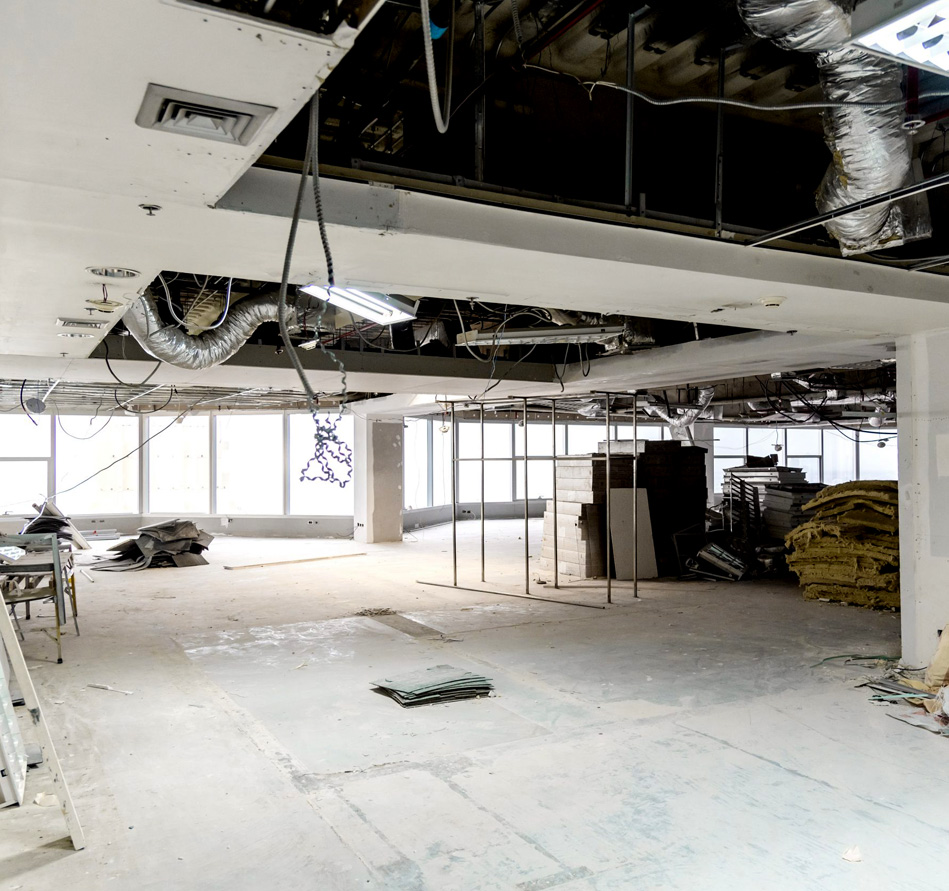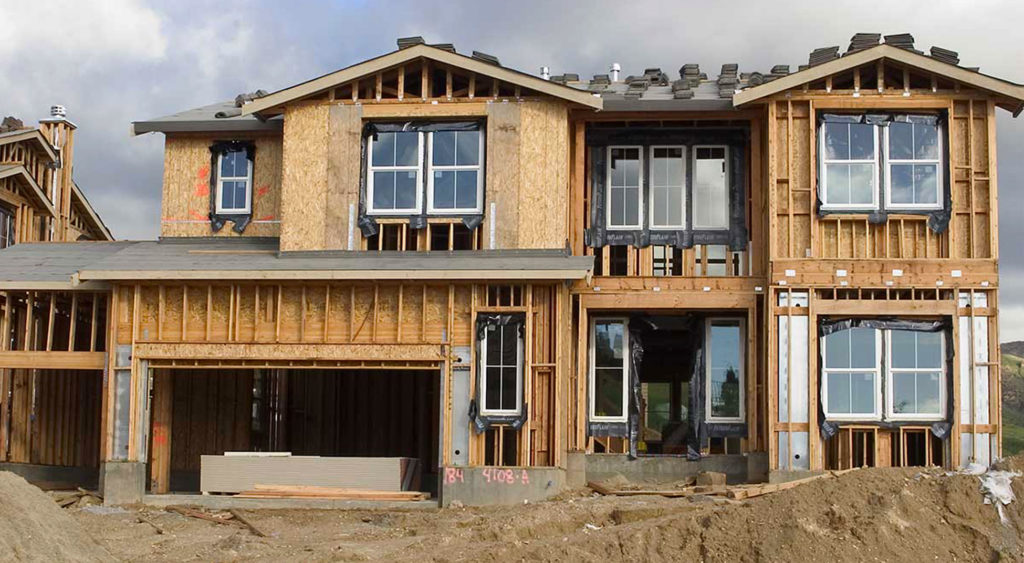
Building Dispute Lawyers
Residential building work in NSW is primarily regulated under the Home Building Act 1989 NSW which is a consumer focused piece of legislation designed to protect homeowners. As a builder, you must be aware of your obligations.
———— 01. OVERVIEW
We Can Help
Residential building projects, ranging from standalone homes and duplexes to multi-storey high-rises, often present complex scenarios that may lead to disputes.
While many such disputes may simply represent differences of opinion between the builder and homeowner, usually resolving themselves over time, others may require intervention.
This is where our team of specialists at One Law can assist. We take the time to understand the contractual relationship, the nature of the dispute, and address the pressing issues at hand. Building disputes commonly involve incomplete or defective work and can surface at any stage of the project, although they tend to occur most frequently after reaching what’s known as ‘practical completion’.
Should a claim be made against you or your company and escalate to a Tribunal or Court, our One Law Building and Construction lawyers are here to assist with negotiating the best possible outcome. We strive to secure the most favourable outcome for you as quickly as possible. Get in touch with us today to discover more about how we can support you.
Get Help Now

At One Law, we can assist builders with the following types of disputes:
- Building defect claims
- Disputes about variations to the scope of work
- Claims involving allegations of breach of the statutory warranties
- Claims involving allegations of unlawful termination of a building contract
- Breach of contractual terms of a building contract
- Progress payment claims, regardless of whether the works have reached practical completion (commenced under the Security of Payment Law)
- All Tribunal and Court work

———— 02. INFO
Information for Builders
Builders in NSW must be aware of their statutory obligations to homeowners under the Home Building Act before carrying out any residential building work. Breaching the provisions of the Act carries civil and, in some cases, criminal penalties including heavy fines and loss of your contractor license.
- Statutory Warranties
- Building Defects Dispute
- Where are Building Disputes Decided in NSW
- What is the Preferred Outcome Principle?
In most cases, disputes under the Act involve allegations of defective or incomplete work. If this be the case, then the builder is alleged to have breached the statutory warranties under the Act.
Statutory warranties are contractual promises that each builder or contractor carrying out residential building work, must include in their contract. Even if these are not referred to in the contract (which in itself is a breach), they are nevertheless included by law.
These warranties essentially are:
- Warranty that the work will be done with due care and skill
- Warranty that materials supplied will be suitable and fit for purpose
- Warranty that the work will be done with due diligence and within time under the contract
Determining whether a breach of a statutory warranty has occurred is a question of law which a Court or Tribunal must arrive at after considering all the relevant circumstances including most importantly the written building contract.
A party who alleges that building work is defective bears the onus of proving it. In most cases, that party will be required to commission an expert building report that can comment on the alleged defects and verify their existence.
It is important to note that even if an expert has provided a report to say works carried out are defective, that may still not prove that there has been a breach of the statutory warranties as that is a question of law. Understanding these disputes requires lawyers to have a specialised knowledge of this area of law which is why we highly recommend that you speak to our building lawyers at One Law.
The question of whether works carried out are in fact defective will require considering, amongst other things, the following matters:
- The written building contract including the builder’s scope
- Whether there have been any representations made by one party to another which can be considered a term of the contract
- Any relevant manufacturer’s installation guides or codes
- Any relevant Australian Standards
Where a dispute of this nature cannot be resolved without further action, and depending on the value of the defects alleged, the matter will need to either go to the Tribunal or Court. If you find yourself in a dispute in excess of $10,000, you should consider seeking legal advice. If the amount in dispute is in excess of $100,000, we recommend that you immediately seek legal representation and do not attempt to run the matter on your own.
The NSW Civil & Administrative Tribunal, sitting in its Consumer & Commercial Division, is the primary jurisdiction for deciding residential building disputes in NSW.
Under the Home Building Act, the Tribunal has a monetary jurisdiction to hear matters up to $500,000. If a building dispute is in excess of this limit, it is transferred to the NSW Supreme Court.
Legal representation is not an automatic right in the Tribunal and leave is required before a party to a home building dispute can have a lawyer represent them. However, procedural directions of the Tribunal provide that leave be granted to parties in a home building dispute if the amount in dispute is more than $30,000.
Although Tribunal matters are conducted with less formality than traditional courts, they can still involve complex legal arguments and require strict compliance with timetable for service of evidence. In our experience, the Tribunal encourages parties to seek legal representation to assist with the efficient running of disputes and their timely disposal.
The Tribunal has powers to make a range of orders when deciding a building dispute. The types of orders the Tribunal can make include ordering a party to pay a sum of money, to do work or a specified act or refrain from doing something.
When deciding which orders to make in a building dispute, the Tribunal must have regard to the principle that ‘rectification is the preferred outcome’.
This statutory presumption leads to a situation where, unless there are circumstances that warrant the making of another order, the Tribunal will order the builder or contractor to attend to the rectification of any defects that are found.
The preferred outcome principle is important in two respects:
- If affords an opportunity to the builder to fix their work;
- It prevents an unjust enrichment by some homeowners who are seeking money from the builder without actually intending on fixing any defects
Despite the preferred outcome principle, a party alleging defective building work may seek a money order from the Tribunal and argue that the statutory presumption should not apply. Whilst in some cases, there may be genuine reasons for this, in others it might just be a motivation to gain a quick cash grab.
If you are involved in a case where the homeowner is seeking a money order, we can help you and advise you on the best way of defending it. The importance of resisting a money order is to avoid being liable to pay rectification costs which have often been determined by a third-party expert, commissioned by the homeowners. These costs can often be exorbitant and therefore it would be preferrable for you to get an opportunity to fix the defects instead, rather than paying the homeowner money.
There are other cases where it would make sense for you to enter into a commercial settlement with the other party. We find that some builders have no desire to engage with the homeowners anymore and instead prefer to pay money. If the individual circumstances of your case require this consideration, we will discuss those options with you.
Get Help Now
———— 03. HELP
How We Can Help
It’s a common occurrence for builders to delay contacting lawyers until a dispute has significantly escalated, typically when they’ve received a Tribunal application or a Court statement. Prevention is often the best strategy, and early legal intervention can often defuse potential disputes before they escalate – saving time, stress and money.
In order to successfully defend a claim, here at One Law our specialists have a good understanding of:
- The Home Building Act
- The building contract and the general law of contract
- What is considered a breach of the statuary warranties. Note that somethings can be considered defective, but not necessarily a breach of the statuary warranties – there is a difference
- How the Tribunal views defects in view of the building contact and the Act
- What tests apply in measuring what a homeowner’s loss is. Note, that just because it may cost as an example $50,000 to fix apartment flooring, does not mean that you should be liable to pay that
Our expert team at One Law can assist you in resolving such disputes. Our lawyers will provide easy to understand advice and recommendations taking the necessary steps to negotiate effective resolution. We offer competitive and flexible pricing and transparent about our fees – you are fully informed of costs upfront.
If you need to chat with one of our Building dispute lawyers, get in touch with us today. We’re here to help.
Get Help Now
———— 04. SUCCESS STORIES
RECENT CASES
$2.2m
Lorem sit Amet
Excepteur sint occaecat cupidatat non proident, sunt in culpa qui officia deserunt mollit anim id est nisi ut aliquip ex ea commodo consequat laborum.
$900k
Lorem sit Amet
Excepteur sint occaecat cupidatat non proident, sunt in culpa qui officia deserunt mollit anim id est nisi ut aliquip ex ea commodo consequat laborum.
———— 05. FAQ
Frequently Asked Questions
What’s the difference between a major and minor defect?
A major defect is a building defect to a major element that causes (or is likely to cause) either:
- The inability to occupy or use the building (or part of it) for its intended purpose
- The destruction of the building, or part of it, or
- A threat of collapse of the building, or part of it
A minor defect are smaller defects that can affect how a building looks or functions. But minor defects don’t compromise the integrity of the building structure.
How long after practical completion can a homeowner make a defect claim?
Under the Home Building Act 1989 (NSW), owners have:
- Two years to make a claim for compensation against a builder for minor defects
- Six years to make a claim against a builder for major defects
What is Practical Completion?
Practical Completion is when the builder completes the work outlined in the contract. This is except for any omissions or defects that don’t prevent a homeowner from using the home or renovations.
I’m a builder and a homeowner has made a claim against me. Can I defend it?
This is where one of our building and construction lawyers comes in to help builders.
We’ve found that there are many occasions where builders can defend defect claims. The defence tends to fall under one of the following categories:
4. The builder is not responsible for the defect as it wasn’t part of the Scope of Work
5. The builder doesn’t believe the work is defective, or
6. The homer brought the claim out of time.
If you’re a builder who needs help defending a claim by a homeowner, contact us for an obligation-free chat.
Do we need to go to Court?
Not at all. In fact, we work hard to get you an early settlement so that Court proceedings aren’t necessary. This means less stress for you. And it keeps your legal costs and the impact on your profitability to a minimum.
———— 06. WHAT OUR CLIENTS SAY
Our reputation for support, and our dedication to your success is the reason we continue to grow
———— 07. OUR TEAM
Your Building and Construction Law Specialists
At One Law, we understand that every case is different, and we take the time to get to know your situation. We are your local lawyers with access to resources in all states, so you know your case is in good hands no matter where you are in Australia. Meet our Business and Commercial Law Specialists
Do you need a Business or Commercial Lawyer?
Call us on our advice line 1800 663 529 or leave your details and we’ll call you.










